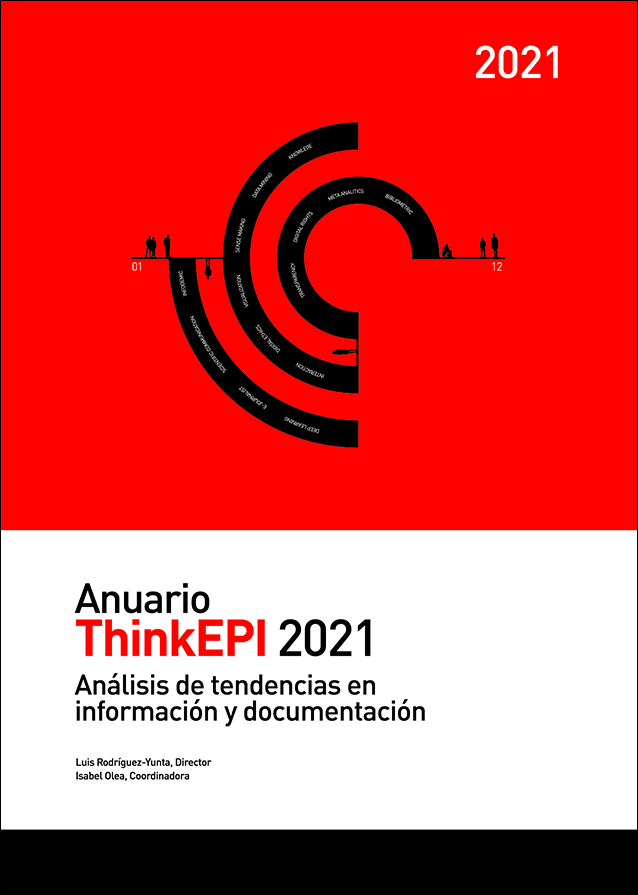Employability of graduates in Library and Information Science five years after graduation
DOI:
https://doi.org/10.3145/thinkepi.2021.e15a02Keywords:
Education, Employability, Job market, Labour market, StatisticsAbstract
This article summarizes results related to graduates in Library and Information Science (LIS) provided in a report on higher-education employability published by the Spanish National Statistics Institute (INE) in 2019. The data show that LIS graduates have a slightly lower employment rate than other graduates. Nevertheless, they enjoy greater job stability, with a higher percentage of permanent contracts instead of placements or internships. More than one-quarter of LIS graduates work part-time, and the Public Administration continues to be the sector providing more employment opportunities for them. A certain level of overqualification is observed, with significant percentages of LIS graduates stating that they hold positions for which their degree is not necessary. Salaries are lower than those of other graduates, with data showing the same gender pay gap that affects female graduates across all disciplines. LIS graduates are satisfied with their training, and most would study the same degree again. They are little inclined to international mobility during their studies and consider themselves advanced users of information and communication technologies.
Downloads
References
Abadal, Ernest; Rubió, Anna (2017). "Evolución de los perfiles ocupacionales de los profesionales de la información". Anuario ThinkEPI, v. 11, pp. 58-62. https://doi.org/10.3145/thinkepi.2017.06
Aneca (2004). Libro blanco Título de Grado en Información y Documentación. Madrid: Aneca. http://www.aneca.es/var/media/150424/libroblanco_jun05_documentacion.pdf
De-la-Moneda, Mercedes (2018). "Las cifras de la enseñanza universitaria en Documentación en España: 2016". Anuario ThinkEPI, v. 12, pp. 15-35. https://doi.org/10.3145/thinkepi.2018.02
INE (2020). Encuesta de inserción laboral de titulados universitarios. Madrid: Instituto Nacional de Estadística. https://www.ine.es/dyngs/INEbase/es/operacion.htm?c=Estadistica_C&cid=1254736176991&menu=resultados&idp=1254735976597
Ministerio de Ciencia, Innovación y Universidades (2019). Inserción laboral de los egresados universitarios. Curso 2013-14. (Análisis hasta 2018). Madrid: Secretaría General Técnica del Ministerio de Ciencia, Innovación y Universidades. https://www.universidades.gob.es/stfls/universidades/Estadisticas/ficheros/Informe_de_Insercion_laboral_egresados.pdf
Moreiro-González, José-Antonio (2015). "¿Empiezan a cambiar las cosas en el mercado de trabajo de los titulados en información y documentación?". Anuario ThinkEPI, v. 10, pp. 49-55. https://doi.org/10.3145/thinkepi.2016.04
Moreiro-González, José-Antonio (2020). "Un breve paseo estadístico por el empleo en el sector público, sin salir de casa". Anuario ThinkEPI, v. 14, e14a01. https://doi.org/10.3145/thinkepi.2020.e14a01
Downloads
Published
How to Cite
Dimensions


